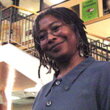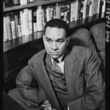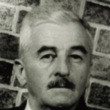Beloved
(Book)
SPA F MORRI
1 available
Copies
| Location | Call Number | Status |
|---|---|---|
| Westover - Adult World Languages | SPA F MORRI | Available |
Description
More Details
Notes
Subjects
Excerpt
Similar Titles From NoveList
Similar Authors From NoveList
Published Reviews
Choice Review
Toni Morrison's fifth novel, Beloved, is the story of the life and loves of Sethe, an escaped slave who had preferred the risk of death to slavery for both herself and her children. Readers who know Morrison's fiction will find familiar themes-the struggle for identity, the all-consuming demands of love, the inescapable presence of the past-explored in a lyric style that combines realistic detail with folktale, legend, and myth. The technique invites almost inevitable comparison with Morrison's masterpiece, Song of Solomon (1977), and indeed there are numerous haunting parallels between Sethe's household and that of Pilate Dead that may illustrate a weakness in this latest novel. The fragile equilibrium between reality and myth so carefully sustained in Song of Solomon is less successful in Beloved, and, as a result, Sethe and her family are less real, less flesh-and-blood than the Deads. And the continual employment of flashbacks in the latter novel occasionally leads to confusion. These criticisms, however, are relatively minor; Song of Solomon is a great novel; Beloved, a very good one. Morrison is one of a handful of contemporary novelists whose work will, in this reviewer's judgment, stand the test of time. For academic, secondary school, and public libraries.-C.E. Davis, University of North Carolina at Greensboro
Booklist Review
This literally haunting novel encapsulates the horror of slavery and the consuming passion of motherhood in a single act of defiance by a runaway slave. (Jl 87 Upfront)
Publisher's Weekly Review
Set in post-Civil War Ohio, this Pulitzer Prize-winning novel concerns a runaway slave and her daughter, whose lives are disrupted by a former slave, a spirit and a woman named Beloved. According to PW, this ``brilliantly conceived story . . . should not be missed.'' (Feb.) (c) Copyright PWxyz, LLC. All rights reserved
Library Journal Review
Morrison's prize-winning, masterly, and disturbing novel Beloved should be an essential part of every library in every format. The story of the escaped slave Sethe and the past that literally and figuratively haunts her is rightfully still vivid, and, in Morrison's controlled reading, the words and images linger powerfully in our mind's eye. The novel was both well researched and imaginatively constructed to show the horrors and costs of both slavery and freedom for these characters who are by turns unforgettable, tragic, and mystical. The library packaging in CD format will allow libraries to enhance their collections or replace the original 20-year-old cassette version. Highly recommended.-Joyce Kessel, Villa Maria Coll., Buffalo, NY (c) Copyright 2010. Library Journals LLC, a wholly owned subsidiary of Media Source, Inc. No redistribution permitted.
Kirkus Book Review
Morrison's truly majestic fifth novel--strong and intricate in craft; devastating in impact. Set in post-Civil War Ohio, this is the story of how former slaves, psychically crippled by years of outrage to their bodies and their humanity, attempt to ""beat hack the past,"" while the ghosts and wounds of that past ravage the present. The Ohio house where Sethe and her second daughter, ten-year-old Denver, live in 1873 is ""spiteful. Full of a [dead] baby's venom."" Sethe's mother-in-law, a good woman who preached freedom to slave minds, has died grieving. It was she who nursed Sethe, the runaway--near death with a newborn--and gave her a brief spell of contentment when Sethe was reunited with her two boys and first baby daughter. But the boys have by now run off, scared, and the murdered first daughter ""has palsied the house"" with rage. Then to the possessed house comes Paul D., one of the ""Pauls"" who, along with Sethe, had been a slave on the ""Sweet Home"" plantation under two owners--one ""enlightened,"" one vicious. (But was there much difference between them?) Sethe will honor Paul D.'s humiliated manhood; Paul D. will banish Sethe's ghost, and hear her stories from the past. But the one story she does not tell him will later drive him away--as it drove away her boys, and as it drove away the neighbors. Before he leaves, Paul D. will be baffled and anxious about Sethe's devotion to the strange, scattered and beautiful lost girl, ""Beloved."" Then, isolated and alone together for years, the three women will cling to one another as mother, daughter, and sister--found at last and redeemed. Finally, the ex-slave community, rebuilding on ashes, will intervene, and Beloved's tortured vision of a mother's love--refracted through a short nightmare life--will end with her death. Morrison traces the shifting shapes of suffering and mythic accommodations, through the shell of psychosis to the core of a victim's dark violence, with a lyrical insistence and a clear sense of the time when a beleaguered peoples' ""only grace. . .was the grace they could imagine. Copyright ©Kirkus Reviews, used with permission.
Library Journal Reviews
Powerful is too tame a word to describe Toni Morrison's searing new novel of post-Civil War Ohio. Morrison, whose myth-laden storytelling shone in Song of Solomon and other novels, has created an unforgettable world in this novel about ex-slaves haunted by violent memories. Before the war, Sethe, pregnant, sent her children away to their grandmother in Ohio, whose freedom had been paid for by their father. Sethe runs too, but when her ``owners'' come to recapture her, she attempts to murder the children, succeeding with one, named Beloved. This murder will (literally) haunt Sethe for the rest of her life and affect everyone around her. A fascinating, grim, relentless story, this important book by a major writer belongs in most libraries. Ann H. Fisher, Radford P.L., Va. Copyright 1987 Cahners Business Information.
Publishers Weekly Reviews
Mixed with the lyric beauty of the writing, the fury in Morrison's (Song of Solomonp latest book is almost palpable. Set in rural Ohio several years after the Civil War, this haunting chronicle of slavery and its aftermath traces the life of a young woman, Sethe, who has kept a terrible memory at bay only by shutting down part of her mind. Juxtaposed with searing descriptions of brutality, gradually revealed in flashbacks, are equally harrowing scenes in which fantasy takes flesh, a device Morrison handles with consummate skill. The narrative concerns Sethe's former life as a slave on Sweet Home Farm, her escape with her children to what seems a safe haven and the tragic events that ensue. The death of Sethe's infant daughter Beloved is the incident on which the plot hinges, and it is obvious to the reader that the sensuous young woman who mysteriously appears one day is Beloved's spirit, come back to claim Sethe's love. Sethe's surviving daughter, Denver, immediately grasps the significance of Beloved's return and so does Paul Dno period after D, another escapee from Sweet Home; but Sethe herself resists comprehension, and, as a result, a certain loss of tension affects the latter part of the narrative. But this is a small flaw in a novel full of insights, both piercing and tender, with distinctive, memorable characters, flowing prose that conveys speech patterns with musical intensity and a brilliantly conceived story. As a record of white brutality mitigated by rare acts of decency and compassion, and as a testament to the courageous lives of a tormented people, this novel is a milestone in the chronicling of the black experience in America. It is Morrison writing at the height of her considerable powers, and it should not be missed. BOMC main selection. (September 16) Copyright 1987 Cahners Business Information.
Reviews from GoodReads
Citations
Morrison, T., & Menéndez, I. (2001). Beloved . Debolsillo.
Chicago / Turabian - Author Date Citation, 17th Edition (style guide)Morrison, Toni and Iris, Menéndez. 2001. Beloved. [Barcelona]: Debolsillo.
Chicago / Turabian - Humanities (Notes and Bibliography) Citation, 17th Edition (style guide)Morrison, Toni and Iris, Menéndez. Beloved [Barcelona]: Debolsillo, 2001.
Harvard Citation (style guide)Morrison, T. and Menéndez, I. (2001). Beloved. [Barcelona]: Debolsillo.
MLA Citation, 9th Edition (style guide)Morrison, Toni, and Iris Menéndez. Beloved Debolsillo, 2001.





































